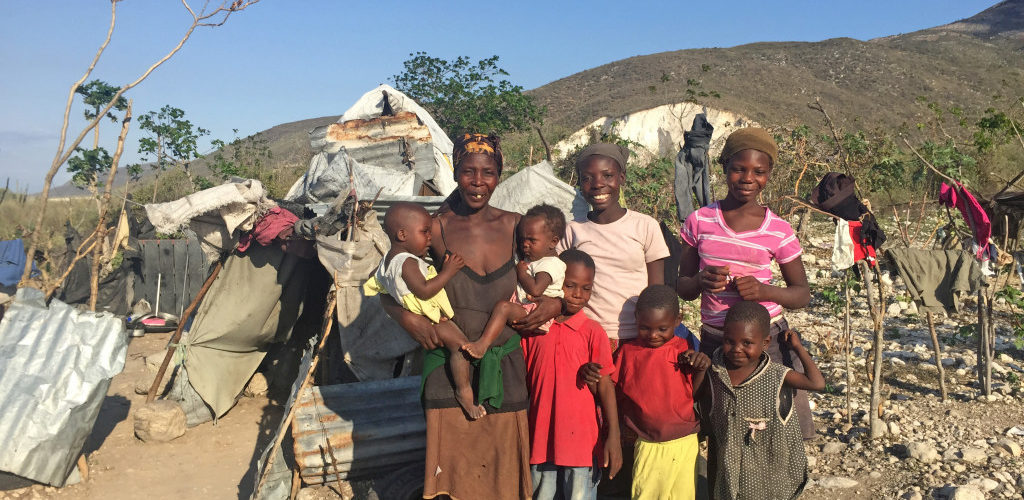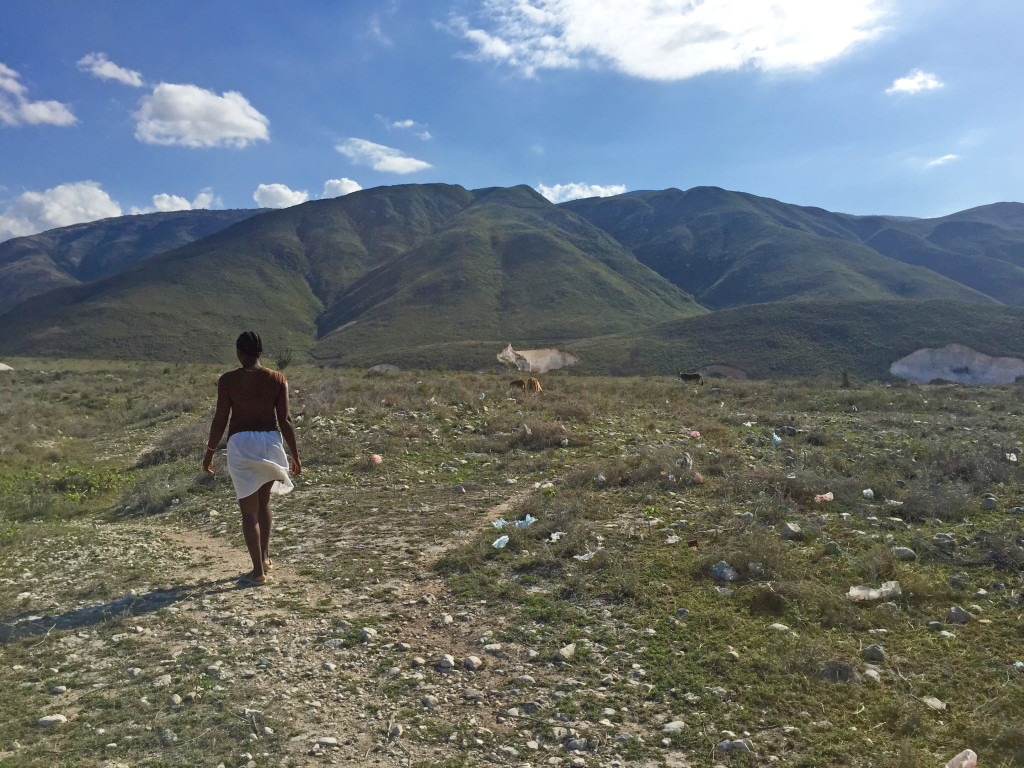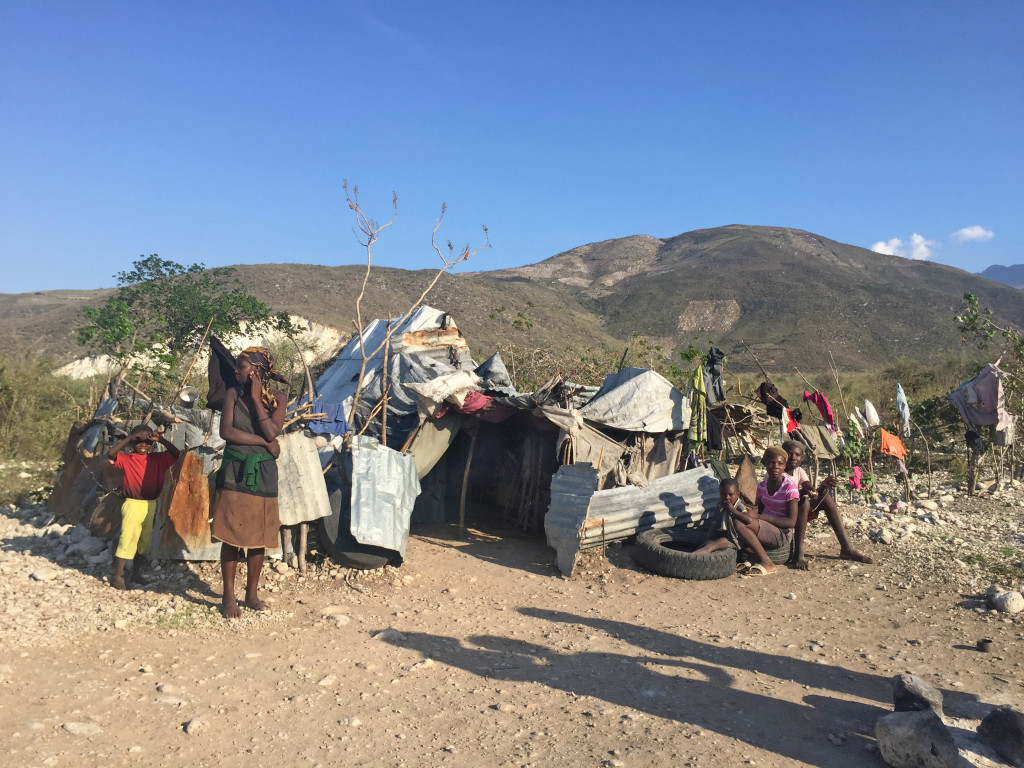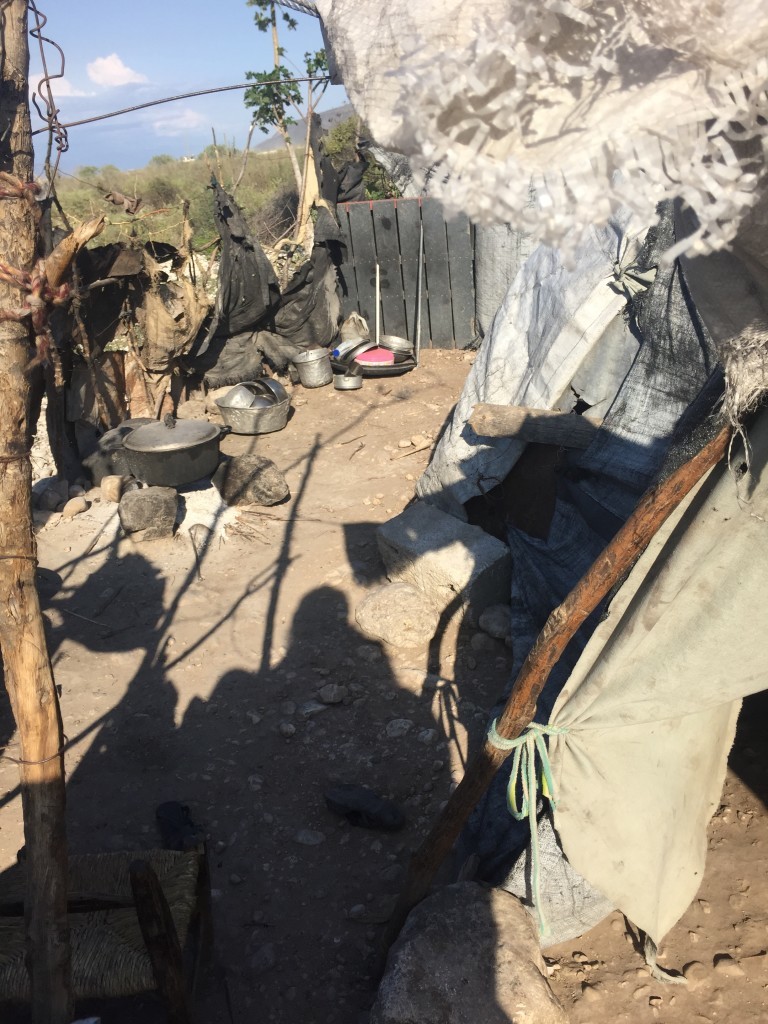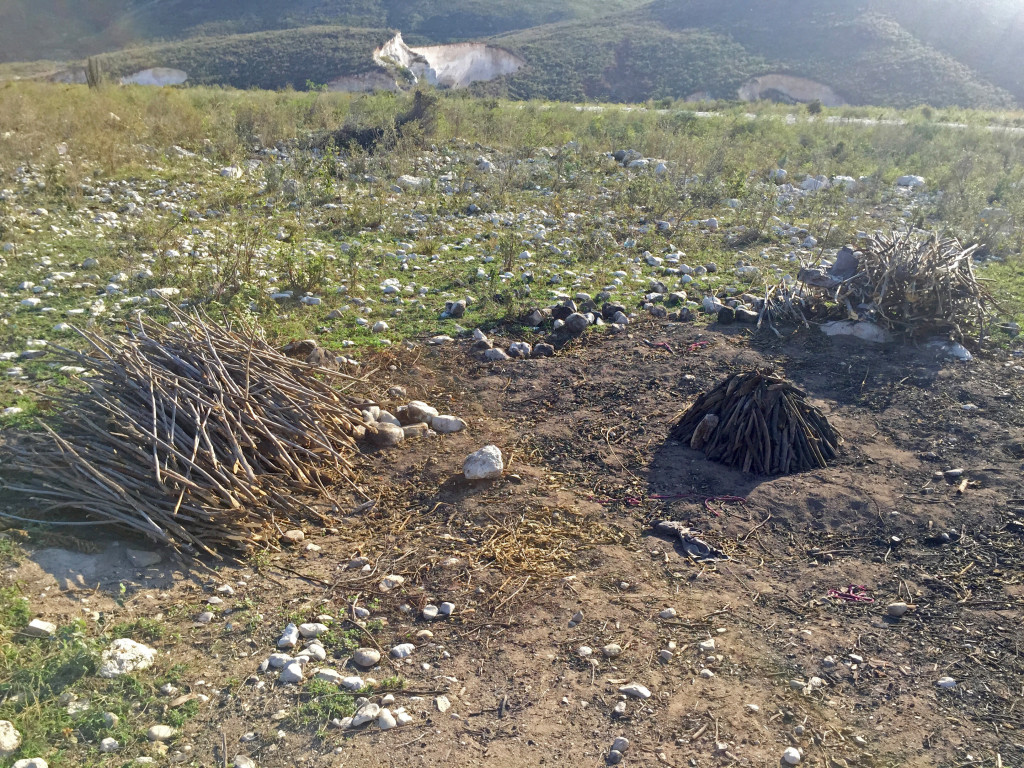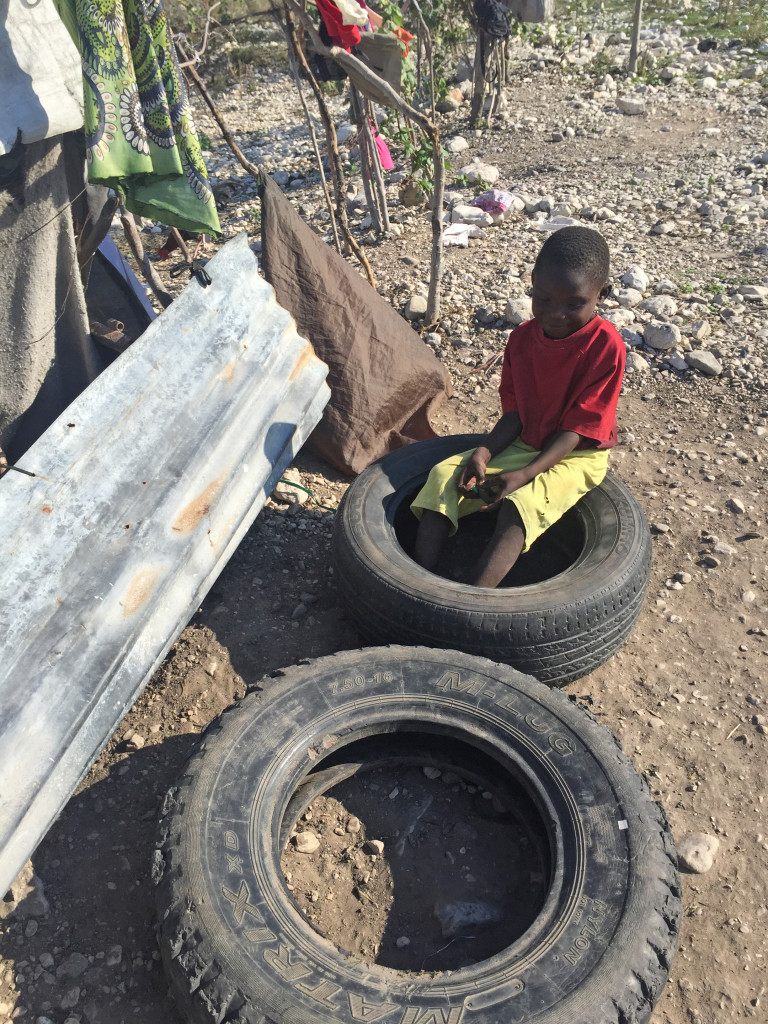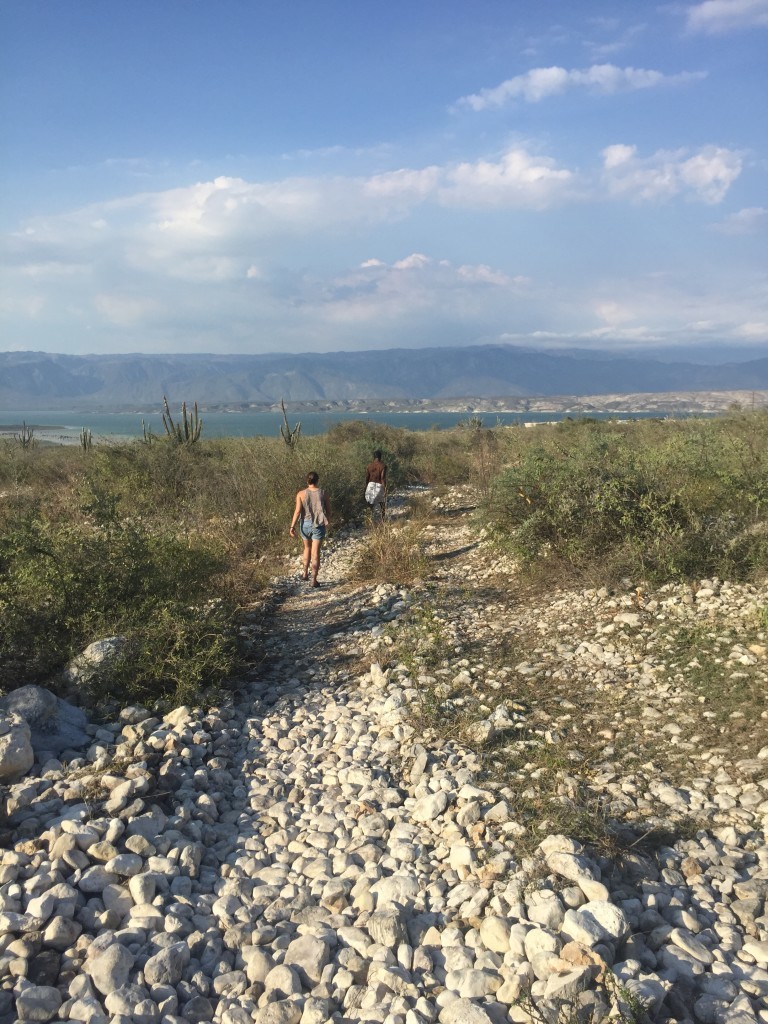by originally posted on SEPTEMBER 9, 2015
Shared with Permission, All Photos Copyright Empower Haiti Together
Original Title: The Charcoal Lady
Roche nan dlo pa konnen doule rouche nan soley.
A rock in the water does not know the pain of a rock in the sun. – Haitian Proverb
In Fond Parisien, a rural village in Haiti’s southeast near the Dominican Republic border, I took a walk with Melia, the mother of one of Empower Haiti Together’s co-founders, Sam. She asked me to come walk with her to visit Madanm Zaniyis, one of her neighbors who she’d been helping out. Hidden in a field littered with rocks and debris was a small shanty – some makeshift sticks forming an A-frame shape with weathered and torn tarps as the roof. It would be a hard enough life for two adults living in this shelter, but to know that a husband and wife and EIGHT children call this home is almost unbearable.
We had gone out to replace her solar light that had malfunctioned, but was fortunately under warranty! (Thanks Osner at Stellar Haiti for your great customer service!) Her hands were full with her youngest two, a set of twins, who were crying, so we offered to go in and hang the unit and lights. She was happy for the help. My thoughts spun as I stepped inside; it was dark and cramped…dirt floor…everything was dusty. I didn’t see a bed – perhaps they slept on some of their things to be off the ground? 10 people in here?! We flipped the switch on the solar light, and the two bulbs shone brightly in the tiny space, almost highlighting the dismal state this family was in. It was a small thing indeed, but to Madanm Zaniyis, having a light that cost nothing to run that allowed her to see and maneuver in her home after the sun went down made a huge difference.
Along one side of the shelter was a traditional Haitian 3-stone fire pit. The fire is lit under the pot and the big rocks keep the pot warm even when the fire begins to die down. I learned that Madanm Zaniyis walks across the field and over to Vilaj Lafwa, where Malia and her family live, to get water at the well there. I can only imagine what a chore doing the dishes or laundry is for her.
I asked Madanm Zaniyis what she did for work? She pointed to a pile of sticks nearby. “I make charcoal.”
Out of curiosity, I asked her what she’d love to do for work if she could do anything in the world. “Making charcoal is ok,” was her response. I tried to hide my dismay. How could her dreams be so small? I asked if she’d ever had a different kind of work in her life. She shook her head, no. “Did your parents make charcoal too?” “Yes, and my grandparents too.” I began to realize that charcoal was all she ever knew so how could she possibly have dreams of doing anything else? I imagine she never had the opportunity to go to school, and if she is squatting on land with a tarp for a roof, I can only imagine that her kids aren’t in school either, and will likely end up making charcoal too. I was talking with my Haitian friend, Sophia, tonight about this. She added that, “Who has the time to learn a new trade and not earn any money in the meantime? And if it doesn’t earn you money, then you’re really in trouble, so many think it’s safer to keep doing what you know.”
This leads me to sidetrack and talk about “magic bullet” solutions in international health. A magic bullet solution is one that typically uses a form of technology, is quick and easy, and is supposed to solve a fairly complex and long-term problem. And when organizations attempt to solve Haiti’s deforestation problem with stoves that take little firewood or use “green briquettes”, I can’t help but think of Madanm Zaniyis. If her last resort at a job is her ONLY option for a job, what will happen to her if even that becomes profitless? Don’t get me wrong, I’m all for reforesting Haiti and cutting back on charcoal use, but we can’t ignore the most fragile lives it could potentially hurt the most. Are the “machann chabon” being considered with new innovations are being developed and introduced?
I keep thinking, would this shelter even be suitable for a goat to live in? I’m not sure. Madanm Zaniyis’s story is unfortunately not unique. This is the life that so many Haitians live…no…manage to survive. Madanm Zaniyis is what they call in Haiti, a poto mitan – the central pillar; mothers in Haiti are often called this as they manage to hold up the house and take care of everyone. She is a fanm djanm, meaning strong woman. She is the epitome of hard work no matter what, but she’s also a woman and a mother that should be living in a better house. A better job would be ideal, but in the meantime a better roof over those 10 heads is what I’m praying for. In some cases, giving someone a home could be considered a hand-out, and I’m well aware of the repercussions this can have, but I also think that sometimes you need a few hand-outs before you’re even ready for a hand up.
Editor’s Note: To see how Empower Haiti Together is helping Madanm Zaniyis, or to get involved, please visit their site: http://www.empowerhaititogether.org/blog/
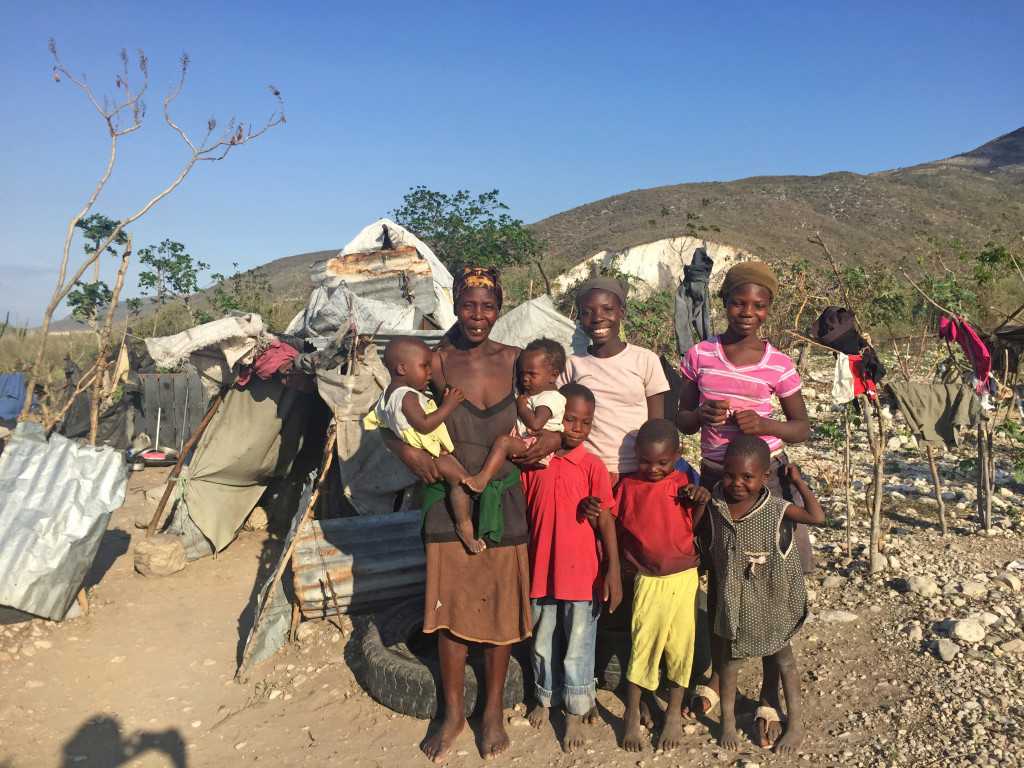
Madanm Zaniyis and family (husband and oldest son not present). The oldest two girls also work in Melia’s neighborhood washing clothes in exchange for food.
As we walked back to Melia’s home, I held Madanm Zaniyis’s story close to my heart, and promised myself I would share her story. Let me tell you something about Melia; she is much more than a mother of 6. She is a mother to her community. She is always making sure Madanm Zaniyis and her family have enough to eat, and her house is always full of neighborhood children. She gives generously out of the little she has. You are truly an angel, Melia. Thank you for introducing me to Madanm Zaniyis.
A rock in the water does not know the pain of a rock in the sun. I will never know or completely understand what her life is like because I’m a rock in the water; I don’t experience what she does on a daily basis, but I hope that I can find a way to divert some of the stream to reach her rock.
Editor’s Note: Yon GWÒ Mèsi to Aslan and the team at Empower Haiti Together for sharing this story with us, and for introducing us to Melia, Madanm Zaniyis, and her family. While there are many reasons to be optimistic for Haiti’s future, there are still too many families in Haiti that survive day-to-day. Amidst such challenging circumstances, it’s encouraging to hear of people like Melia, whose generosity extends far beyond her immediate family to her neighbors and community members too. We’ll continue to be in touch with Aslan to stay up to date on Madanm Zaniyis and her family and to learn more about the work Empower Haiti Together is doing to help provide a sturdier home for the family.

